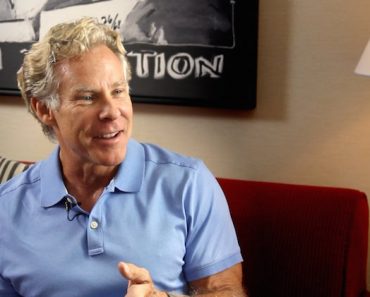One of the most frustrating and difficult to conquer barriers to productivity is that thing we all hate to admit we do: procrastinate.
We procrastinate for a few key reasons. Either we think we will have no problem getting something done at the last minute, so we put it off without a second thought, or we avoid things because we don’t “feel like” working on them. We might be afraid of failing, or we’re just distracted by too many other things.
Procrastination is a real problem with fairly simple solutions. Here is your ultimate guide to overcoming your least favorite habit.
Manage your minutes
It’s easy to fall deep into a procrastination cycle when you don’t practice effective time management. You try the infamous “I’ll start working on this project in an hour,” which turns into two hours, then three, then, “I’ll just start on it tomorrow.” And so on.
To overcome procrastination, manage your time. Start sooner rather than later. Do the most important things first, and take very short breaks. Here are a few time management tips from some successful billionaires, if you need an extra dose of motivation to get your schedules in order.
Set realistic productivity goals
You can’t look at your to-do list and promise yourself you are going to get everything on it done before the end of the work day. This can lead to a lot more stress and feelings of being overwhelmed than you need, which often unintentionally lead to putting things off until we “feel more in control.”
Be realistic about your productivity goals. Start by choosing one or two projects you are going to get done today and focus on those. If those are the only things you can get done today, that’s still progress. If you finish those and have time to start on something else, you have the luxury of choosing whether to take a break or work ahead of schedule.
Start
Back to the “I’ll start working on this in an hour” promise. It’s a promise very rarely kept. Even an hour of procrastination can lead you into a downward spiral of un-productivity. No more excuses.
Just start. It may not seem as simple as that, but it is. You’re putting it off because you don’t feel like doing it, or you are afraid you will fail, or you feel pressured. You will feel 10 times better after you sti down and just start working. Getting started is often the biggest hurdle, and once you leap over it, you’re much less likely to continue putting that project off any longer.
Work on one thing at a time
Multi-tasking is a symptom of procrastination, whether you know it or not. You try to convince yourself that jumping from one thing to another and back again will make you feel less stressed and help you get more done. In reality, it won’t.
Single-tasking not only makes you more productive, but it also makes you much less likely to put things off. Select that one task you really don’t want to do, do your best to forget about everything else, and focus on that one task for about an hour or so. Take a break and see how you feel. You just might find yourself in a flow state, and you won’t have any problem finishing what you started.
Throw out your go-to distractions
We don’t always procrastinate by working on projects that are less important than the ones due sooner rather than later. Sometimes we procrastinate by doing mindless things, like checking apps on our phones. We try to convince ourselves we are still being productive, even though it’s still technically procrastination.
In reality, we often procrastinate because we have things like apps on our phones to check. Think of how tempting it is to eat a brownie when there’s a brownie sitting within reaching distance. If that brownie weren’t there, you probably wouldn’t be likely to think out of the blue, “I really want a brownie.” The same goes for mindless distractions. Get rid of them, if you can, and you will be less likely to procrastinate with them.
Save the things you’re looking forward to for last
You have two projects you need to finish today: one you are really excited about and interested in working on, and one you are dreading and don’t have any interest in working on at all. Your first instinct might be to start working on the one you are looking forward to. After all, won’t getting that work done first motivate you to jump right into the project you don’t want to do straight after?
Who’s to say you won’t finish that project you enjoyed, feel great about what you have accomplished, and then proceed to continue putting off the project you don’t want to work on? That’s the likely scenario here. You aren’t going to want to work on that project more just because you finished other work. Do what you don’t want to do first, so you have an incentive to work on the thing you are looking forward to last.
Reward yourself (strategically) for being productive
Everyone wants a reward when they feel they have done a good job. Psychologically, that’s just how we are built. However, not everyone knows the best way to seek out those kinds of rewards, or formulate their own reward systems for getting work done even when they really didn’t want to do anything at all.
Don’t just reward yourself when you finish something, though that’s important too. Reward yourself with a short break after every hour of work, both so you can rest and so you can feel more accomplished. Promising yourself small rewards, and following through on those promises, can motivate you to keep pushing through your work and will make you less likely to put things off and avoid them.
Procrastination is a bad habit just like any other: it seems a lot harder to overcome than it actually is. Follow this guide to help you break the cycle. You can do it – RIGHT NOW!







